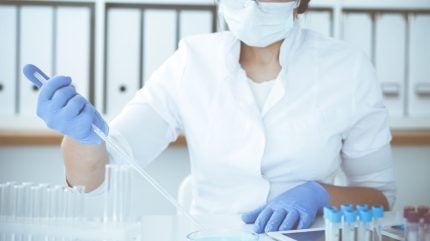

Astellas Pharma subsidiaries the Astellas Institute for Regenerative Medicine and Universal Cells have signed a research partnership with the Graduate School of Medicine/Faculty of Medicine at Osaka University in Japan to develop pluripotent stem cell-derived cartilage organoid cell therapy.
The collaboration will focus on advancing the new treatment, aimed at addressing intervertebral disc degenerative disease.

Discover B2B Marketing That Performs
Combine business intelligence and editorial excellence to reach engaged professionals across 36 leading media platforms.
Universal Cells has the rights to Universal Donor Cell (UDC) technology.
This technology will aid in the creation of cell therapy products from pluripotent stem cells.
By genetically modifying the human leukocyte antigen (HLA) through gene editing, the UDC technology significantly reduces the risk of immune rejection.
The three entities will merge the cartilage tissue creation protocol, Universal Cells’ UDC technology and AIRM’s extensive research and development (R&D) capabilities in cell therapy.

US Tariffs are shifting - will you react or anticipate?
Don’t let policy changes catch you off guard. Stay proactive with real-time data and expert analysis.
By GlobalDataAstellas chief scientific officer Yoshitsugu Shitaka stated: “Astellas is committed to achieving our vision of being on the forefront of healthcare change, turning innovative science into value for patients.
“We hope to provide our cutting-edge UDC technology to academia and startups globally, and deliver next-generation cell therapies to patients. This partnership is an important step in the open innovation using UDC technology.”
Osaka University Graduate School of Medicine Department of Tissue Biochemistry and professor of molecular biology Noriyuki Tsumaki stated: “We believe that our cartilage-like tissue has the potential to regenerate intervertebral discs. We hope that combining our research with Astellas’ UDC technology and R&D cell therapy system will accelerate and realise the development of regenerative therapies to treat intervertebral disc degenerative disease.”
In March 2024, Astellas’ monoclonal antibody Vyloy (zolbetuximab) secured approval from Japan’s Ministry of Health, Labour and Welfare (MHLW) in combination with chemotherapy for the treatment of gastric cancer.
Cell & Gene Therapy coverage on Pharmaceutical Technology is supported by Cytiva.
Editorial content is independently produced and follows the highest standards of journalistic integrity. Topic sponsors are not involved in the creation of editorial content.





